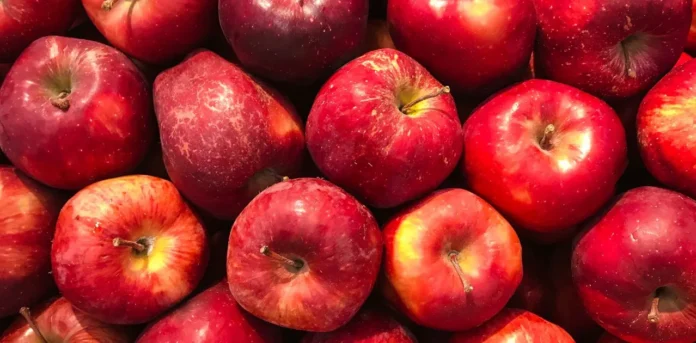America Reliance on Foreign Produce Expected to Surge, Widening the Ag Trade Deficit
Loren Koeman, an agricultural economist from the Michigan Farm Bureau, says as the agribusiness crisis widens, America’s dependence on imports will increase dramatically. Speaking to Brownfield Ag News, Koeman highlighted a significant growth in fruit imports over the past three decades and predicted a continuing trend of this.
“Thirty years ago, less than 15 percent of fruit consumed in the United States was imported,” Koeman said. “Today we have about 50 percent, and this trend has remained quite stable. If we continue on our current path, it is likely that in thirty years more than 70 percent of our seeds will be imported.”
Increasing imports of seed pose significant challenges for American farmers, making it increasingly difficult to compete. Koeman pointed out that the loss of competitiveness is especially severe during periods of domestic growth when foreign manufacturers can put cheaper products on the market.
“We need to ensure that countries with year-round production capabilities don’t just dump their produce into our markets at the lowest possible price during our peak season.” “Such actions could damage our production, could drive them out of business and allow foreign suppliers to dominate the market,” he stressed.
Increased imports of fruits and vegetables have boosted U.S. imports as the agribusiness crisis worsened. The USDA’s latest quarterly update reported a $32 billion deficit, with import growth a key driver.
To mitigate these challenges, Koeman stressed the importance of addressing the rising cost of farm labor and the increasing number of marketing contracts. “Labor costs are a major concern for American farmers,” he explained. “The cost of hiring farm labor in the US is rising, making it more difficult for domestic manufacturers to compete with cheaper imports.”
Reforming trade agreements is another important measure to curb import dumping. Koeman said strong protections are necessary to protect American farmers from unfair competition. “Trade agreements should be structured in such a way that cheap imports do not hurt our domestic production,” he said. “We need to take measures to prevent other countries from taking advantage of our market.”
The trend toward increased dependence on foreign sources has significant implications for the US economy and food security. As domestic manufacturing struggles to keep up with imports, growing concerns about the long-term sustainability of agriculture arise. The shift to imports also raises questions about food quality and safety standards, as different countries have different laws and practices.
Koeman’s insights underscore the urgent need for policy interventions to support American agriculture. By addressing labor costs and strengthening trade protectionism, the US can help ensure the viability of its domestic agricultural sector. Without such measures, dependence on foreign imports is set to increase, further expanding costly agricultural trade and potentially damaging the country’s food security.
In conclusion, the continued growth of crop imports is an important issue for American agriculture. The widening trade deficit, fueled by rising imports of fruits and vegetables, underscores the competitive pressures US farmers face. Addressing rising labor costs and increasing marketing contracts is essential to safeguarding the future of domestic agriculture. Doing so will help maintain a strong and robust agricultural sector capable of meeting the needs of the country. For more related news, click here
Read about: Graphic Packaging Announces Plan For Senior Notes Offering

